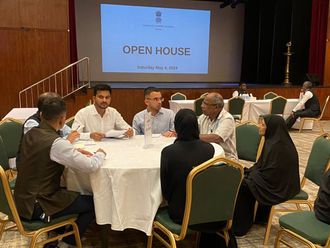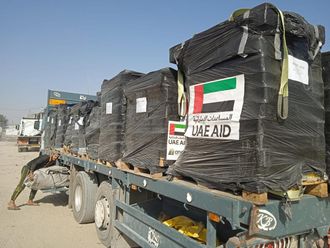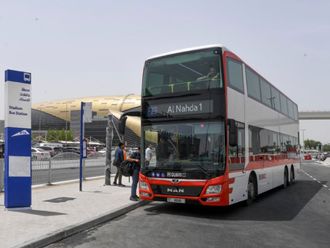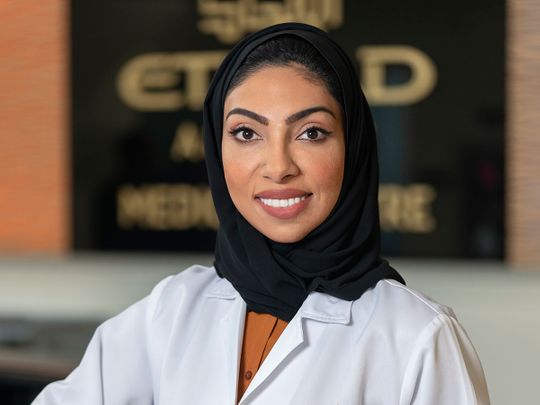
ABU DHABI: As the UAE’s first Emirati woman to specialise in aviation medicine, Dr Nadia Bastaki is a pioneer in her own right.
“While studying Family Medicine, I was inspired by His Highness Sheikh Mohammed Bin Rashid Al Maktoum, Vice-President and Prime Minister of UAE and Ruler of Dubai, who always encouraged Emiratis to be ‘the first’ and ‘be different’. I spent many months researching different programmes across a variety of universities, constantly searching for that something that would give me the spark I was looking for. When I came across aviation and aerospace medicine, all of a sudden I knew this was my dream,” she told Gulf News in an exclusive interview ahead of Emirati Women’s Day on August 28.
She said, “The course description aligned perfectly with my personality while at the same time, combined with my passion to be a doctor in a clinical practice. I spoke with the founders at the university and followed their guidelines to a tee to ensure my dream would become a reality. Fortunately for me, through Kings College London, I was headhunted by Etihad Airways in 2006.”
Learning about space medicine has provided me with an insight into how not only the physiology of the human body changes with altitude but how a different level of fitness is required in order for a pilot to function at optimal performance.
Now the vice-president for medical and well-being services at the Etihad Aviation Group, she oversees the medical services on behalf of Etihad employees and its flight crew.
Overcoming challenges
Dr Bastaki’s success has not come without its share of challenges.
“Aerospace and Aviation Medicine presented many challenging but rewarding experiences. I had to go through a myriad programmes, including a land and sea survival course, an injury accident investigation programme for ejected pilots and a helicopter ditching exercise, none of which was easy — particularly the latter as we were put inside a centrifuge,” she recalled.
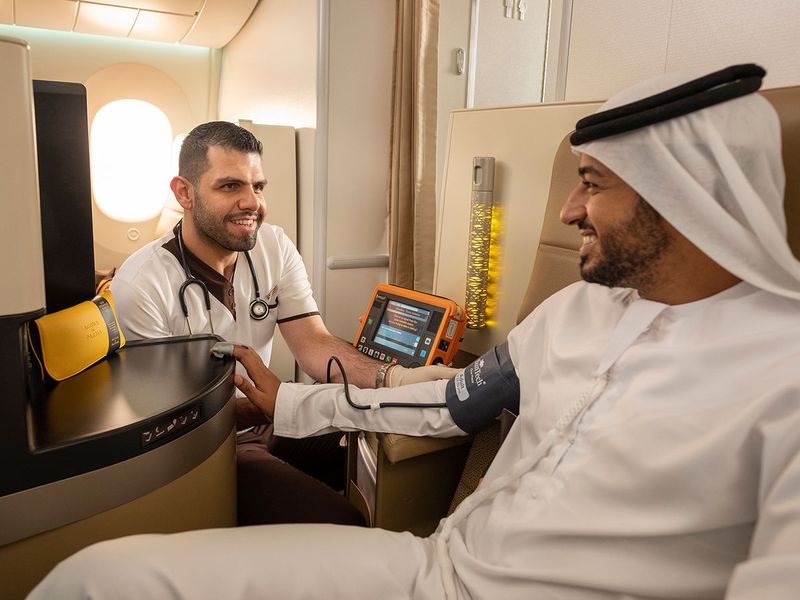
The most interesting aspect of the job, according to her, has been space medicine. In partnership with the Mohammed Bin Rashid Space Centre, she also participated in conducting medical tests for the team chosen to work in the UAE Astronaut Programme.
“Learning about space medicine has provided me with an insight into how not only the physiology of the human body changes with altitude but how a different level of fitness is required in order for a pilot to function at optimal performance. It was fascinating to learn about these differences and how both commercial and military pilots and even astronauts deal with these challenges. The more I learnt, the more I wanted to explore, to the extent that I registered myself into a flying school. I wanted to truly understand what pilots feel and experience their working conditions to enable me to offer the highest level of medical care to them.”
Common in-flight problems
Dr Bastaki said there are no particular illnesses associated with flying either before, during or after take-off. “However, some may experience anxiety before a flight or have travel confined space phobia. In some instances, passengers may have a history of motion sickness therefore may feel nauseous and experience vomiting. When it comes to long-haul flights, as the body crosses multiple time zones, some passengers may feel more jet-lagged than others.”
But what about deep vein thrombosis?
“Blood clots, also called deep vein thrombosis (DVT), can be a serious risk for some long-distance travellers. However, anyone travelling for more than four hours, whether by air, car, bus, or train, can be at risk of blood clots.”
She said blood clots can form in the deep veins (veins below the surface that are not visible through the skin) of your legs while sitting still in a confined space for long periods of time. “The longer you are immobile, the greater your risk of developing a blood clot. Many times the blood clot will dissolve on its own. However, a serious health problem can occur when a part of the blood clot breaks off and travels to the lungs causing a blockage. This is called a pulmonary embolism, and it may be fatal.”
The good news, however, is there are things you can do to protect your health and reduce your risk of blood clots during a long-distance trip, she added.
Medical guidelines
Dr Bastaki said the biggest challenge for air medical teams is that passengers do not disclose their medical information or health status before a flight. “Airlines have clear medical guidelines which should be read prior to travel to ensure any necessary medical clearances can be obtained in advance. Some guests require special assistance such as oxygen, stretcher, wheelchair or certain medications. These can all be cleared and supported by Etihad’s medical aviation specialist team in advance to ensure a smooth, safe journey and to prevent a medical emergency. We are also contracted with Medlink which grants us 24 hour access to doctors on the ground that crew can connect with anytime during the flight to ask them to review medical information remotely,” she added.
She said last year, Etihad also launched two specialised services for air travellers with pre-existing medical conditions. While the first service allows those who require medical clearance prior to travel, a chance to request an Etihad aviation doctor to visit them and conduct an evaluation in consultation with their attending physician, the second is the introduction of an in-flight nurse who can accompany passengers during their trip and provide medical support.




